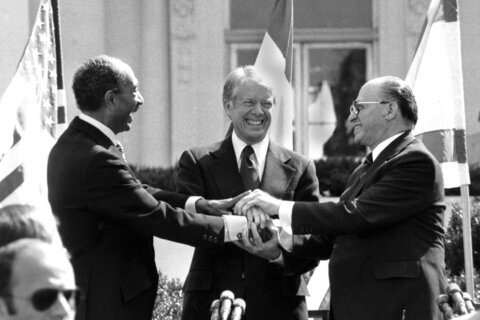In the workplace, savvy employees understand how to use their communication skills to get things done. Whether it’s through public speaking, writing or nonverbal cues, good communication can help convey a message clearly and encourage effective collaboration with others.
In short, communication skills may be one of your greatest assets. They’re easy to showcase in a job interview, but how can you highlight them on a resume? Here’s what to know.
What Are Communication Skills?
Communication skills allow you to convey information and ideas effectively through written, verbal, nonverbal or visual mediums. People with strong communication skills in the workplace generally excel at the following:
— Crafting well-structured emails, reports or memos that convey an intended message clearly and concisely
— Confidently engaging in one-on-one conversations, meetings or telephone dialogue
— Interpreting body language, facial expressions and gestures that often supplement or even supersede spoken word
— Effectively using visual aids like charts, diagrams, drawings or infographics to represent data and ideas
Communication skills are essential because they foster clear understanding among team members, ensuring everyone is on the same page regarding tasks and expectations. Good communication also improves team collaboration, builds relationships and trust among employees, reduces misunderstandings, and often leads to a more efficient workplace.
[See: Red Flag Phrases to Leave Off Your Resume.]
Key Communication Skills to Add to Your Resume
Communication skills go beyond being able to speak and write effectively. They also include active listening, problem-solving and accepting constructive feedback. Here are 20 must-have communication skills to highlight on your resume.
— Inclusivity
— Empathetic listening
— Remote collaboration
— Analytical skills
— Written communication
— Verbal communication
— Group communications
— Teaching skills
— Persuasion
— Problem-solving
— Active questioning
— Open-mindedness
— Clarity
— Responsiveness
— Time management
— Accepting constructive feedback
— Friendliness
— Conflict resolution
— Negotiation
— Mentoring
1. Inclusivity
Inclusivity in the workplace means welcoming and supporting people with all kinds of backgrounds, identities and experiences. On your resume, highlight how you support and collaborate with others who are different from you. For example, how have you led productive meetings for customers across time zones, or unified business needs with others who have vastly different priorities, roles and even languages? Demonstrate your methods for including others.
Example: “Led a diverse team of 10 individuals spanning different divisions and backgrounds. Successfully implemented an inclusive team communication strategy that fostered open dialogue and mutual respect, which resulted in a 20% increase in project completion efficiency.”
2. Empathetic Listening
Empathetic listening is the ability to be attentive and responsive to others’ input during conversations. This skill is highly valued in the workplace since it allows others to feel comfortable being themselves and expressing their ideas. It also lays the foundation for open and honest communication. On your resume, highlight examples of how you understand and incorporate perspectives and viewpoints that differ from your own.
Example: “As a customer service representative at X Company, I was praised for my ability to empathize with customers. This skill was reflected in my consistently high feedback scores, averaging 4.8 out of 5 for customer satisfaction.”
3. Remote Collaboration
If you’re applying for a position at a remote-friendly or hybrid company, showcasing your comfort with remote collaboration on your resume can help you stand out from the competition. For example, you can mention how you used communication tools such as Teams or Slack to stay connected with team members in different time zones while working from home.
Example: “Successfully led a team of six members in five different time zones at X Company. Implemented daily stand-up meetings and weekly progress reports using collaborative software, leading to a 30% increase in on-time delivery.”
4. Analytical Skills
Analytical skills mean you can interpret and analyze data to solve problems and make decisions. Your resume can be an excellent opportunity to show employers how you use data insights to influence or guide teams and decisions. Give examples of how you communicated your analysis through reports, meetings or using graphics or presentations. Show key questions you analyzed, how you shared your knowledge, and what benefits your company or clients gained.
Example: “Led a team of five in a market research project for a new product launch. Performed an in-depth analysis of customer feedback and buying patterns, then communicated the results in a concise report that significantly influenced the marketing strategy. Our efforts ultimately led to a 20% increase in sales upon product launch.”
5. Written Communication
Your resume is the first sample of your writing, so make sure it is well-written, concise and coherent. In addition to demonstrating excellent resume writing, look for opportunities to describe any written communication experience and the impact of your work.
Example: “As a content writer at X Company, I crafted over 100 well-researched articles and blogs, contributing to a 10% increase in website traffic.”
6. Verbal Communication
While the interview process will test your verbal communication, you can still weave these strengths into your resume. For example, you could describe how your everyday verbal communication with co-workers, managers, direct reports or customers made a positive difference in your workplace.
Example: “As a marketing coordinator, I presented marketing strategies and campaign results to stakeholders during weekly meetings and negotiated with over 50 vendors for event sponsorships, resulting in a 30% increase in the company’s marketing reach.”
7. Group Communication
Effective group communication is the glue that holds a team together. Teams that work well together have a positive impact on company productivity and engagement. If you’ve had experience facilitating strong group communication as a leader or team member, include this skill on your resume. Highlight how your contributions fostered open dialogue, encouraged teamwork and led to the team’s success.
Example: “As a project manager, I led a cross-functional team of 15 members on a complex project that spanned six months. By facilitating weekly team meetings and developing clear group communication strategies, we completed the project one week before the deadline and stayed within budget.”
8. Teaching Skills
The ability to teach means you can explain processes or concepts clearly, show patience and adapt your approach to different learning styles. This soft skill can come in handy when you’re mentoring a colleague, leading a training session or sharing tips with your team. On your resume, call out instances where your teaching skills helped others understand new ideas or benefited the company.
Example: “As team lead at X Company, I developed and implemented a training program for recruits that improved the productivity of new hires by 30% and reduced their time to proficiency by 25%.”
9. Persuasion
Your resume is an ideal place to show how your skills of persuasion make you an asset. For example, were you able to change a practice or institute a new process that had a positive impact? Did you play a role in improving work culture or recruiting talented new employees? Did you convince management to invest in a new productivity tool?
Example: “Successfully negotiated a new contract with a key supplier, achieving a 20% reduction in costs while maintaining product quality.”
10. Problem-Solving
Use your resume to show how you approach problem-solving and how this skill helps you solve business problems. Include how you assess issues, collaborate with others, build consensus and ultimately get a result.
Example: “As a customer service representative at X Company, I initiated a detailed analysis of a client’s issue, identified its root cause and worked with the tech team to devise a solution. This resolved the client’s immediate issue and led to the development of a troubleshooting protocol that reduced similar complaints by 30%.”
[35 Common Job Interview Questions and How to Answer Them]
11. Effective Questioning
Mastering effective questioning not only spurs the exchange of ideas but also helps build rapport and trust among team members. You may spend much of your workday asking others for information, such as requesting status updates from team members or asking colleagues about their project ideas. So if you believe effective questioning is one of your strong suits, include it on your resume by explaining how this skill benefited your workplace.
Example: “In project kick-off meetings at X Company, I focused on asking the right questions to clarify goals and gather input from the team, which helped us reduce project revisions by 15%.”
12. Open-Mindedness
An open mindset allows you to be receptive to new ideas and information. Being open-minded in the workplace typically means being able to embrace change, learn new things and work collaboratively with others. Employers appreciate this quality in employees since it often leads to a more positive and respectful work environment. Elevate your resume with this soft skill by describing how your open-mindedness helped you adapt to changes, solve problems or contribute to team success.
Example: “Led brainstorming sessions where everyone was encouraged to share their ideas, no matter how unconventional. This open-mindedness led to a new feature that resulted in a 25% boost in positive customer feedback.”
13. Clarity
Clarity is an underrated soft skill in the workplace. It refers to the ability to communicate information, ideas and instructions clearly and understandably. Mastering clarity in your communication not only helps you collaborate better with others but also reduces misunderstandings. The simplest way to show future employers your ability to communicate clearly is by ensuring your resume reflects clarity. You could also provide concrete evidence of your clear communication in the workplace.
Example: “Created project documentation that made technical details easy for non-technical team members to understand. This clarity increased our project approval rates by 20%.”
14. Responsiveness
Responsiveness in the workplace refers to how quickly and efficiently you follow up with those seeking assistance or input. Prompt responses, especially in a fast-paced environment, are important since they keep communication flowing and strengthen collaboration. Plus, when you respond quickly to your manager’s or colleagues’ questions or concerns, it shows you value their time and can lead to a more positive and harmonious work culture.
Example: “Quickly created a detailed project management system that helped streamline team processes after my manager suggested implementing a more structured workflow for our tasks.”
15. Time Management
Time management skills allow you to allocate your time more effectively, complete your tasks and meet deadlines at work. Employers appreciate employees with great time management skills since they’re more productive and can help keep projects on track. Include this soft skill on your resume by sharing how you’ve prioritized tasks, organized your schedule or used techniques to manage your time better.
Example: “By using the Pomodoro technique, I managed a full workload of coding tasks while simultaneously leading team meetings and mentoring new hires during a peak season at X Company.”
16. Accepting Constructive Feedback
Accepting constructive feedback gracefully is another underrated skill in the workplace. Handling feedback without becoming defensive shows employers that you possess emotional intelligence and professionalism.
Example: “Revamped slide designs based on feedback regarding visual clarity, which led to more professional and visually appealing presentations that captured the audience’s attention.”
17. Friendliness
Having a warm and approachable personality is an invaluable soft skill, especially in customer-facing roles like sales representative or customer service representative. This quality not only improves customer satisfaction but also positively affects how you connect with your team members. To showcase your friendliness on your resume, describe examples of how your approachable demeanor helped build strong relationships or improved customer experience.
Example: “Welcomed new team members with warm introductions and organized informal gatherings, helping them feel valued and integrated into the team.”
18. Conflict Resolution
While it may be tempting to get defensive at the first sight of a conflict in the workplace, doing so can affect your reputation, the company’s reputation and your relationship with that person. This is why knowing how to resolve conflicts in a professional setting is important. Mastering conflict resolution fosters open dialogue and turns conflicts into opportunities for growth and stronger relationships.
Example: “Encouraged a focus on solutions rather than blame during conflicts, which helped my team navigate disagreements constructively and maintain a positive work atmosphere.”
19. Negotiating
The ability to negotiate is a soft skill that can come in handy in salary discussions, project management and working with clients or suppliers. It helps you advocate for yourself, find common ground with colleagues and secure better deals for your company. If you’re skilled at negotiation, be sure to highlight it on your resume by providing examples and quantifiable results.
Example: “Negotiated flexible pricing models with service providers, which helped my company save on costs 25% and better manage budgets for upcoming projects.”
20. Mentoring
Mentoring skills allow you to transfer your experience to mentees and guide their professional development. Employers often seek mentoring skills because employees value guidance and support, which raises morale and motivates them to succeed at work.
Example: “Mentored junior team members by providing regular one-on-one sessions to review their work, share feedback and discuss career development goals.”
[READ: 7 Things Interviewers Notice First]
Tips for Improving Your Communication Skills
Follow these tips to sharpen your communication skills and impress your future employer.
Use the Art of Storytelling
Storytelling isn’t just for bedtime tales or campfires. It can also be an effective tool for enhancing your communication skills at work. When you share a story, you paint a vivid picture with words, which makes your message more engaging, relatable and easy to understand.
“Stories are memorable and can create a deeper connection with the audience, making messages impactful,” says Maria Tomas-Keegan, CEO and career coach at Transition and Thrive With Maria. “Next time you’re giving a presentation or explaining a concept, weave in a personal story or analogy. It can be as simple as comparing a work project to a personal experience or using a metaphor that paints a clearer picture.”
Participate in a Lunch-and-Learn Series
Organize or participate in a lunch-and-learn series where you talk about the work you do. Not only will your colleagues gain a better understanding of your role within the company, you’ll get an opportunity to polish your public speaking skills.
“You have expertise that others within the company may want to learn more about,” says Neil Thompson, public speaking coach and founder of training platform Teach the Geek. “And if a lunch-and-learn event doesn’t exist at your workplace, create it and invite others to talk about what they do.”
Adopt a Nondirective Approach
A nondirective approach can help you become a better communicator in the workplace, says William Sipling, director of engagement and operations at OutCenter Southwest Michigan, a resource for the local LGBTQ+ community.
Common in counseling and therapy, a nondirective communication approach focuses on information gathering and active listening. “It’s not heavy on advice-giving because it assumes the person you’re talking with is an expert on what they’re bringing to you,” he emphasizes.
“When I work with senior or experienced subject matter experts, I start from a nondirective standpoint. I help them use their experience to uncover a solution and take them out of functional fixedness into a new, potentially solutions-oriented environment,” Sipling says.
Be Proactive and Pay Attention to Patterns
In fast-paced workplaces like hospitals, tasks and responsibilities often vary from day to day, creating an element of unpredictability. But there’s generally a level of predictability in nonverbal cues and patterns in every workplace, says Jenny Morehead, CEO of Flex HR, a human resource outsourcing and consulting firm.
By recognizing and effectively communicating these patterns to team members, you can anticipate what lies ahead and prepare accordingly. Morehead suggests using phrases such as, “We’ve seen this pattern before, so here is how we’re going to handle it” to provide a clear plan of action.
Ask Clarifying Questions
Active listening doesn’t mean staying quiet while the other person is talking and jumping in as soon as they’re done, says Kristie Stocker, a success coach and leadership consultant. “It means digesting what they’re saying, focusing, pondering it and asking questions for more understanding,” she says.
If you’re confused about something the other person is saying, Stocker suggests using the sentence, “So what you’re saying is …” to give them a chance to clarify their response. Doing so demonstrates you’re fully invested in the conversation and not simply nodding along without genuinely understanding what’s being said.
More from U.S. News
What Not to Say in an Interview — Even If It’s True
20 Communication Skills for Your Resume originally appeared on usnews.com
Update 10/22/24: This story was published at an earlier date and has been updated with new information.







